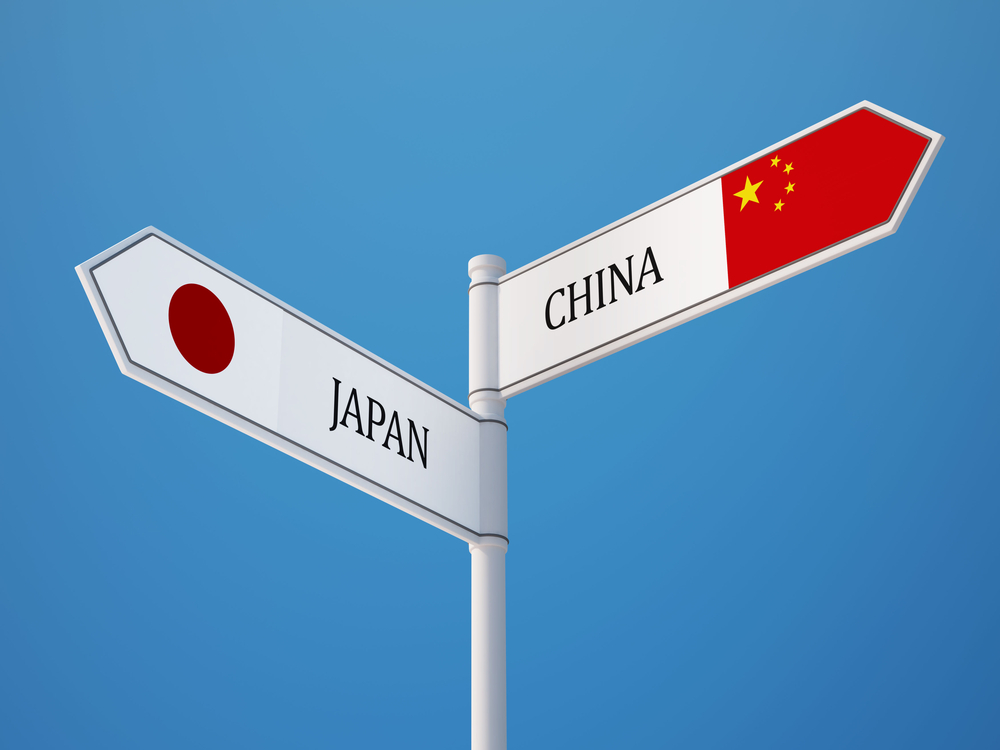The Economy is not Enough

Please note that we are not authorised to provide any investment advice. The content on this page is for information purposes only.
Will increasing economic interdependence between Japan and China increase or reduce the risk of conflict?
The conventional liberal wisdom is that economic interdependence between states enhances peaceful relations — as in the saying attributed to the early 19th century French economist Frederic Bastiat: ‘if goods don’t cross borders, armies will’. However, critics have pointed out that on the eve of World War II Germany and the United Kingdom were each other’s major trading partners.
Will increasing economic interdependence between Japan and China increase or reduce the risk of conflict?
The conventional liberal wisdom is that economic interdependence between states enhances peaceful relations — as in the saying attributed to the early 19th century French economist Frederic Bastiat: ‘if goods don’t cross borders, armies will’. However, critics have pointed out that on the eve of World War II Germany and the United Kingdom were each other’s major trading partners.
The specific patterns of Sino–Japanese relations also pose a possible challenge to this theory. For a very long period, from the 17th century to the mid-19th century, trade between China and Japan was limited to occasional visits by Chinese merchants to the port of Nagasaki. In addition, there were no wars. Then, not long after both China and Japan were ‘opened’ — China with the First Opium War in 1839 and Japan with gunboat diplomacy in the 1850s — the Sino–Japanese War of 1894–95 broke out.
From the late-19th to the mid-20th century Japanese aggression towards China was virtually uninterrupted: the Sino–Japanese War, military invasion over the Boxer Uprising (1900), fighting on Chinese soil during the Russo–Japanese War (1904–05), annexing the erstwhile Chinese tributary state of Korea (1910), the Twenty-One Demands (1915), the occupation of Manchuria (1931), the Rape of Nanking (1937) and the outbreak of Pacific War (1937–45). In the process, Japan established a substantial economic presence in China, especially in the northeast.
Then for three decades — from the Communist Revolution in 1949 to the launch of the reform program in 1979 — China closed itself off from the rest of the world economy and there was very limited trade between China and Japan; nor was there any armed conflict. Then, following Nixon’s surprise visit to Beijing in 1972, Japanese Prime Minister Kakuei Tanaka hurried to Beijing, diplomatic relations was renewed, trade resumed and Japanese aid flowed to China.
As noises began to spread in the 1980s that China’s new economic program heralded potential major transformations and opportunities, Japanese investors seemed unwilling to take a chance on China. The Japanese did not see the rise of China coming and they are still reeling from the shock.
To go forward, we first need to retrace our steps.
As Rana Mitter recently documented in China’s War with Japan, 1937–1945: The Struggle for Survival, historians have grossly misrepresented, if not obliterated, China’s role in aiding the defeat of Japan in World War II. This reflects, among other things, in the prevalent view among Japanese that defeat was at the hands of the Americans, not the Chinese!
American occupation policy underwent a dramatic 180-degree change after the Communist Party took control in China and the Cold War settled on the world. Japan metamorphosed from defeated enemy to pampered protégé. In a large part thanks to all the American support — massive transfers of technology, setting the value of the yen at a low, highly competitive exchange rate (360 yen to the US dollar), opening of the US market to Japanese goods — the Japanese economy rose rapidly, engendering the ‘economic miracle’ of the 1960s. Within a dozen years after the war, it became the world’s second biggest economy. During this time, the Chinese continued to be dirt-poor.
Throughout the 1980s, the Japanese economy grew rapidly and appeared to be poised to surpass the United States. Then, as the Japanese economy tanked into its lost decades — in stark contrast to China’s inexorable rise — economic interdependence intensified. China and Japan became major trading partners. Exports to China drove what meagre growth Japan was able to generate. Japanese direct investments surged and Japanese technology played a critical role in the development and competitiveness of China’s global supply chains. Most recently, with the advantage of the declining value of the yen, Japan has become a major destination for Chinese tourists.
While the mutual benefits derived from economic interdependence would seem to indicate that all is well, this is far from the case. There are disputes galore, including over territory (the Senkaku/Diaoyu islands), over history, and over Japanese Prime Minister Shinzo Abe’s defence policy. In a Pew Survey on Global Views of China, the Japanese stand out as having the most ‘unfavourable’ views of China at 89 percent. The second is Vietnam with 74 percent ‘unfavourable’, while the figure is much lower among China’s other Asian neighbours: 37 percent for South Korea, 32 percent for India, 22 percent for Indonesia and 17 percent for Malaysia. For the US, it is 54 percent.
All this raises several key questions. Can economic interdependence erase or even attenuate such fundamental antagonisms? Are long-term sustainable economic relationships possible with people you mistrust? As China’s economy seems to head for choppy waters, might Beijing be tempted to encourage popular venom against Japan to deflect attention from domestic ills?
More fundamentally, can economic pragmatism trump nationalist fervour? The lessons from history in respect to this question are not encouraging. Economic interdependence is not enough: measures for confidence-building and dialogue are urgently required.
Economic ties won’t ensure peace between China and Japan is republished with permission from East Asia Forum




